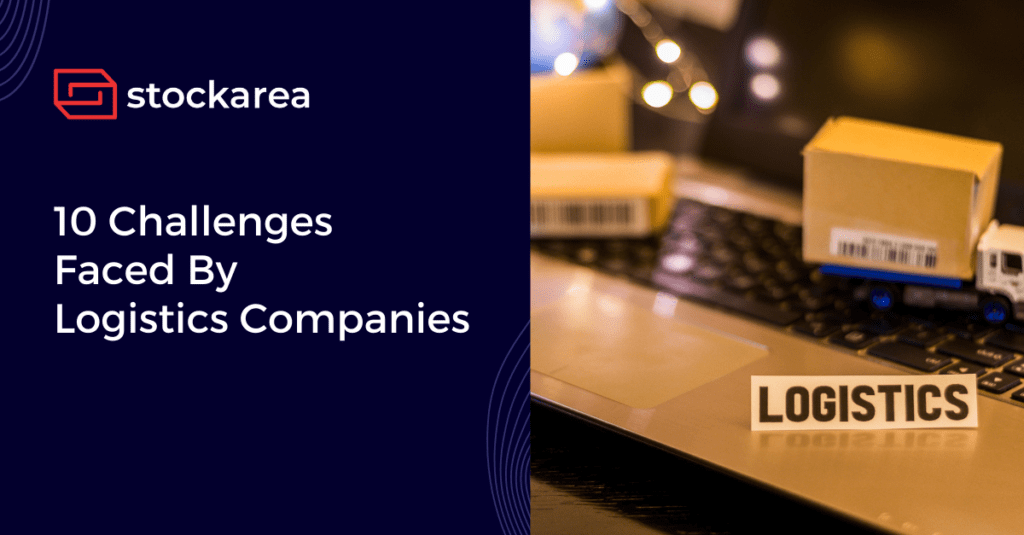Logistics firms are the backbone of every industry in a country. Whether it’s agriculture, manufacturing, or simply moving things, it is hard to imagine an economy without adequate logistics and transportation. Logistics play a critical role in promoting trade and ensuring smooth operations. However, as time passes, the evolutionary changes in technology, customer demand, and ever-changing legislation create more hurdles for even the largest logistics organizations.
1. Cost Savings On Transportation
This is the industry’s one of the greatest difficulties, as transportation accounts for a sizable portion of total logistics expenses. A key source of concern for logistics businesses worldwide is the rise in fuel prices, as they account for most of the increase in transportation costs. Increased fuel prices impose an additional surcharge on customers, effectively increasing the total shipping cost or freight charge for products and affecting revenue and earnings when fuel prices fall. Failure to cut costs results in an increase in expenses and, ultimately, losses for the business.
2. Enhancing Business Procedures
Keeping up with new advances in business procedures is another challenge for the logistics company. As new opportunities arise, it is in the best interest to adapt and adopt these changes to improve service and operational efficiency. According to a study, 36% of firms surveyed strongly agreed that they relied on their logistics partners to deliver cost savings and process improvements. This requires logistics partners to have the knowledge and experience to look beyond supply chain and operations to effect change throughout the framework of the entire procedure. Moreover, they should be financially stable, adaptable, and willing to take appropriate risks for long-term gain.
3. Improving Customer Service
Markets are dynamic and competitive nowadays, supply chains have grown complex and customer expectations have shifted. When clients place an order with the business today, they have higher expectations of delivery times and service quality. Customers expect their logistics partners to assist them in resolving issues and growing in a competitive climate. They demand tracking information and real-time updates on the status of their order throughout the shipment and delivery process. Additionally, they want the option of paying for expedited freight, such as two-day or same-day delivery.
4. Relationships with Suppliers
Any logistics company’s success depends upon its relationship with its suppliers. Businesses should continuously strengthen their relationship with their supplier, keeping them informed of their development and ensuring that the supplier is satisfied with their success. It is critical to develop, comprehend, and adhere to mutually agreed upon standards in order to gain a greater understanding of not only present performance but also areas for development.
5. Reverse logistics
Every e-commerce business requires reverse logistics. Customers return products they have purchased if they are unsatisfied, and the process should be seamless. Without an effective reverse logistics platform, you risk alienating customers and preventing them from making another purchase from you. However, implementing a reverse logistics plan can be difficult and costly without the proper support.
6. Shortage Of Drivers
Driver shortages continue to be a major problem for logistics companies across the globe. Dealing with drivers and transporters are critical necessities that should be addressed with proper supply and demand management. One of the most effective ways for shippers to attract new drivers is to offer amenities that address the drivers’ interests, requirements, and aspirations. Shippers can begin developing a more positive relationship by demonstrating the importance and necessity of drivers for the growth of the company.
7. Lack Of Skilled Manpower
Numerous logistics sectors suffer from an increasing shortage of competent labour and specialized experts. With the advancement of modern technology, there is an increased demand for technically trained manpower. However, most labourers are underqualified, overworked, and lack the necessary skill sets to ensure the process is efficient. As a result, these businesses confront significant workforce turnover, increasing training expenditures, and underperforming human resource departments.
8. Government Regulations
Logistics companies should adhere to stringent laws set by federal, state, and local governments. Transportation legislation, norms, and security measures differ by region, and educating all company staff about these restrictions can be a significant burden. Additionally, these laws constrain the scope and autonomy of logistics firms and their ability to seek alternative viable options and prospects.
9. Environmental Regulations
The growth of transportation and logistics infrastructure requires a significant amount of space. As a result, carbon emission increases and the environment suffers. Reduced greenhouse gas emissions is a top priority for many logistics businesses, particularly in light of several studies demonstrating the negative impact of large industrial supply chains on the environment. Companies that adapt and decrease their carbon footprints succeed more than ever before, as both partners and consumers are more conscious.
10. Technological Barriers
While technology is critical to a logistics company’s success and primarily benefits the industry, most businesses are faced with problems such as ‘who will pay for it’ and ‘who will execute the technology advancements’. Responding to these questions is critical for logistics companies operating in developing and third world countries. Additionally, the cost of logistics technology is relatively high, with only the largest logistics organizations able to afford top-notch technology.
Related posts
- 5 Key Differences Between Supply Chain Management & Logistics
- Top 11 Warehousing Companies In Hyderabad [2024 List]
- Top 12 Business Ideas For Students In India
- Pallets
- 6 Effective Ways To Grow Your Logistics Business
- Logistics Market In India
- Business Intelligence Solution for Intralogistics
- Top 11 Trucking Industry Trends In 2024
- 7 Latest Technologies Changing The Trucking Industry
- What Is Transportation Management System?
- Cross-Border Logistics Challenges and Solutions
- Supply Chain Vs Value Chain – What’s The Difference?
- 7 Key Functions Of Logistics Company
